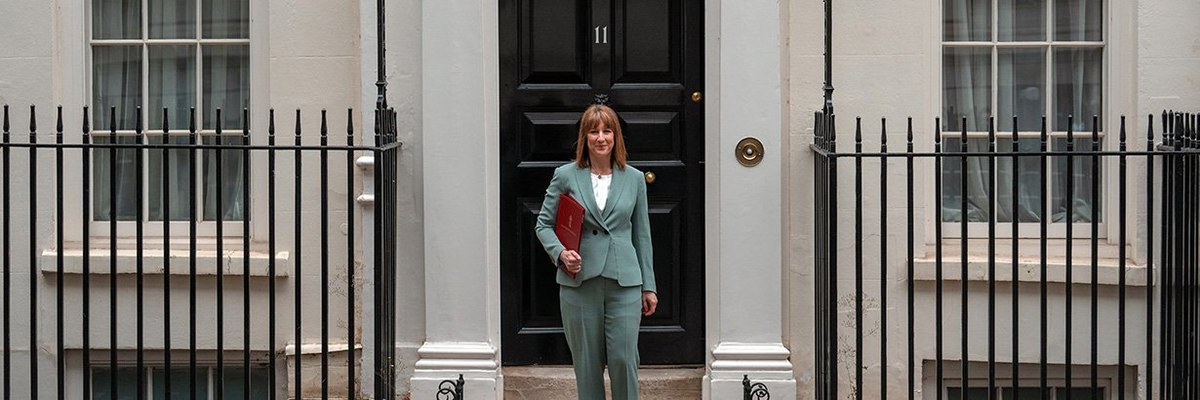Britons are sceptical that spending pledges can be achieved without Labour breaking its fiscal rules or manifesto tax promises
On Wednesday, Rachel Reeves unveiled her second Spending Review, outlining the government’s fiscal priorities and funding allocations for the coming years.
When it comes to key measures set out by the chancellor, increased funding for the NHS gains the most approval, with 83% describing this as the right priority for spending.
Most Britons also back plans to increase funds for repairing and refurbishing school buildings (76%), build more affordable homes and homes for social rent (68%), and increase the number of prison places (56%).
Half of Britons (50%) also support measures to expand nuclear power, including the building of Sizewell C and investing in smaller modular power stations – significantly more than the number who branded it the wrong priority for spending (28%).
More divisive is “increasing investment in science and technology”, although this may largely reflect the fact that those words were immediately followed by “including AI development”, given Britons’ notable scepticism of artificial intelligence. While 42% of people feel that this is the right priority for spending, a further 39% say it is the wrong priority.
At the bottom of the list was the proposal to fund railway expansion, including a new line between Milton Keynes, Oxford and Cambridge, as well as TransPennine rail links. This is seen as an appropriate priority for spending by 35% of Britons, compared to 44% who say it is the wrong priority.
Few Britons think Spending Review pledges are affordable
The government has been painstaking in its messaging approach that spending commitments will neither breach Labour’s fiscal rules nor its manifesto promises not to raise income tax, National Insurance or VAT.
The public are sceptical, however: 67% believe the government will probably need to increase taxes or borrowing to pay for them, including 64% of Labour voters. Only 12% think they can probably be afforded from current revenues and tax changes that have already been announced.
Rachel Reeves still largely seen as a bad chancellor
Just one in six Britons (16%) believe Rachel Reeves is doing a good job as chancellor, compared to 49% who say she is doing a bad job. This is only marginally less bad than it was three months ago, following the Spring Statement.
Among those who voted to put Reeves and her party in power last year, opinion is divided: 33% say Reeves is doing a good job, while 27% say she is doing a bad one. Again, this represents only a minor improvement since March.
Economic negativity declines slightly, but this does not mean an increase in positivity
Most Britons continue to think the government are handling the economy badly, at 64%, although this has fallen slightly from 70% in March. Still, only 23% say the economy is being handled well (up four points), including only 1% who think it is being managed “very well”.
Labour voters prove to be more positive on the government’s economic stewardship – indeed, more say that it is being handled well (50%) than badly (39%) – representing a reversal in attitudes since March.
Economic negativity has tailed off a bit with the public, although that is not to say they are becoming more optimistic.
The number of Britons who describe the state of the economy as very or fairly bad has fallen 11pts to 66% since the Spring Statement, but a mere 6% now describe it as being “good” – effectively unchanged from the 4% it was three months ago. Where there has been growth, it is in the number of people who describe the economy as “neither good nor bad”, up from 16% to 23%.
While Labour will be pleased to see that the number of people expecting the economy to get worse over the next 12 months has fallen from 65% to 54%, the number expecting things to get better has remained largely unchanged, at 13% compared to 11%. Instead, more Britons now expect stasis, with 23% expecting the economy to remain about the same for the next 12 months, up from 16% at the time of the Spring Statement.
A similar story plays out when it comes to Britons’ own household finances. The number saying they expect their household financial situation to get worse over the next 12 months has fallen from 54% to 46%, while expectations that things will improve are effectively unchanged, at 13% from 12%. Again, more Britons are now likely to simply think their personal situation will remain at about the same level, at 35%, up from 28% in March.
There is more economic positivity among Labour voters. While in each case the plurality response remains with the negative answer, Labour voters are the most likely to describe the economy as good (13%), to think it will get better over the next year (25%) and that their own household finances will improve (22%).
What do you think about the measures announced in the spending review, Labour's handling of the economy, and everything else? Have your say, join the YouGov panel, and get paid to share your thoughts. Sign up here.
Photo: Getty















